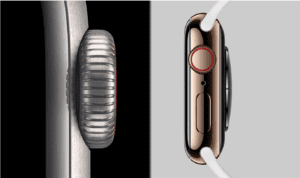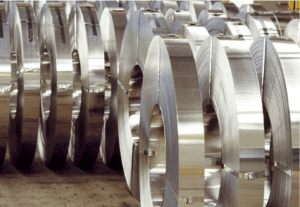
Apple’s iPhone has been an iconic and innovative smartphone product, setting the bar for design, performance, and materials. Over the years, Apple has utilized various materials for the frames and casings of their iPhones, including aluminum, glass, titanium, and stainless steel. Two of the most premium and durable options are titanium and stainless steel. Let’s compare these materials to understand their advantages and differences.
Stainless Steel:
Durability:
Stainless steel is known for its remarkable durability. It’s highly resistant to corrosion, rust, and staining, ensuring the iPhone maintains its polished look for a long time.
Aesthetic Appeal:
Stainless steel’s shiny and reflective surface gives iPhones a sleek and premium appearance. It complements the modern design of Apple’s devices.
Strength:
Stainless steel provides excellent structural integrity to the iPhone, offering robust protection for internal components.
Weight:
Stainless steel is denser than aluminium but still lighter than other materials like titanium, which helps maintain a relatively lightweight design.
Scratch Resistance:
While stainless steel is generally resistant to scratches, it may still show signs of wear over time with regular use.

Titanium:
Lightweight:
Titanium is known for its exceptional strength-to-weight ratio. Despite its strength, it’s incredibly lightweight, making it an ideal choice for those who prefer a lighter device.
Durability:
Titanium is highly resistant to corrosion and scratches, ensuring the iPhone remains pristine even after heavy use.
Aesthetic Variation:
Titanium’s matte finish provides a different aesthetic than stainless steel. It has a unique, understated look that appeals to those who prefer a more minimalist style.
Strength:
Although lightweight, titanium offers excellent strength and structural integrity to protect the device’s internals.
Limited Availability:
As of my last knowledge update in September 2021, Apple used titanium in its Apple Watch Edition models and not in its iPhone lineup. However, Apple’s material choices may have evolved since then.
Conclusion:
The choice between titanium and stainless steel ultimately depends on your preferences and priorities. Stainless steel offers a shiny and premium look with exceptional durability, while titanium provides strength and scratch resistance in a lightweight package. Remember that Apple’s material choices for its iPhone models can change yearly, so it’s essential to check the specific model’s specifications before purchasing. Both materials are premium choices, and either one can result in a high-quality iPhone experience.